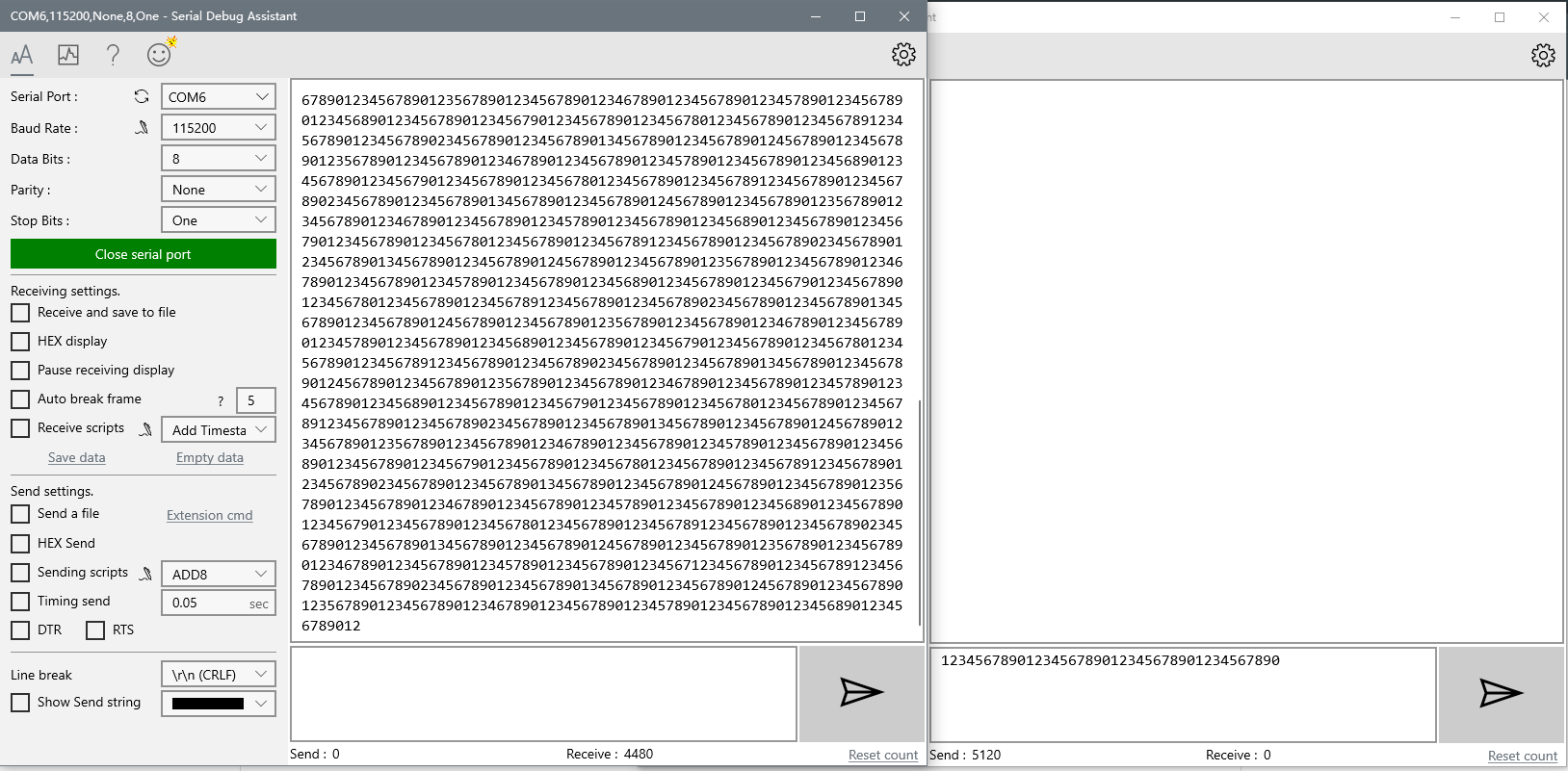- nRF connect SDK 1.9.1
- nRF5340 DK
We use the official samples Bluetooth: Central UART and Bluetooth: Peripheral UART to test bluetooth transfer between two development kit. We found observable delays and data loss when sending data continuously.
Specifically, the central sends data with a length of 40 bytes each 0.05s. The central send a total of 5120bytes, but the peripheral recieve only 4480 bytes of data. The transmission process was accompanied by a relatively obvious delay.



